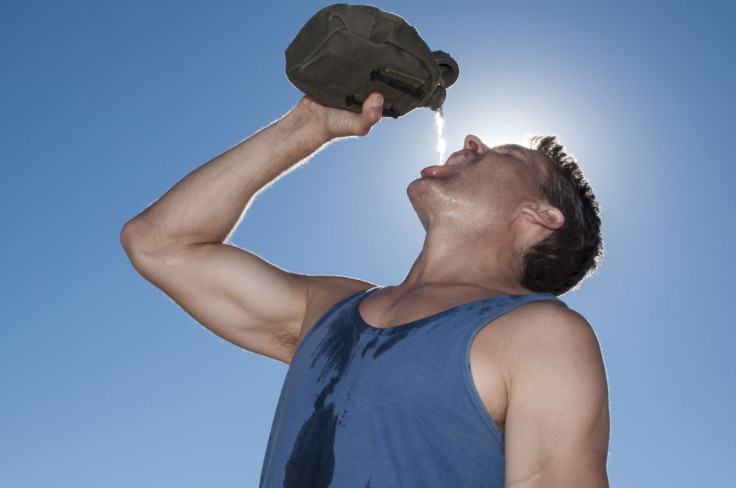The Dehydrated Brain's Coping Mechanism Helps It Sustain Function In Extreme Conditions

With summer's hot temperatures soaring, more people are finding themselves at risk of dehydration. Up to 75 percent of Americans don’t drink the daily recommended amount of water. The good news, however temporarily, is that the brain can help a person cope with the effects of dehydration by extracting more oxygen from the blood, according to a new study.
"This research has helped us understand a lot more about how the human brain responds to extreme exercise in extreme conditions," said Steven Trangmar, study author and researcher at Brunel University, in a press release, according to HealthDay. "We can now see that blood flow to this vital organ is significantly affected by dehydration. But we can also see that this is when the brain kicks in, preserving its own oxygen consumption to ensure it sustains its function."
In the study, researchers tested 10 experienced cyclists by having them ride their bikes in the heat until they were exhausted. They measured their blood flow by using catheters, which they inserted into the cyclist’s brachial and internal jugular veins. They also used ultrasound technology. The researchers observed that as the cyclists got tired and dehydrated, their body mass dropped along with their brain blood flow and ability to exercise — their body temperature also increased. Overall, the brain showed that it was affected by dehydration, which was why it tried to protect itself by extracting more oxygen from the blood.
This reaction explains why the cyclists lost blood flow, making it harder for them to keep going. "These findings show that the brain has remarkable ways of protecting itself from extreme circumstances, however, they also clearly substantiate the recommendation that people should ingest fluids during exercise to help optimize physiological function and performance," said Jose Gonzalez-Alonso, a professor of exercise and cardiovascular physiology at the university, according to HealthDay.
Dehydration occurs when your body loses more water than it takes in. Some causes of dehydration include hot weather, physical activity, persistent vomiting, and diarrhea. The researchers recommend that everyone drink sufficient amounts of water, especially when participating in extreme physical activities. According to Mayo Clinic, babies, the elderly, diabetics, and alcoholics are more at risk of dehydration. Everyone in these categories should have a higher intake of water.
Source: Trangmar S, Chiesa S, Stock C, Kalsi K, Secher N, Gonzalez-Alonso J. Dehydration affects cerebral blood flow but not its metabolic rate for oxygen during maximal exercise in trained humans. The Journal of Physiology. 2014.



























